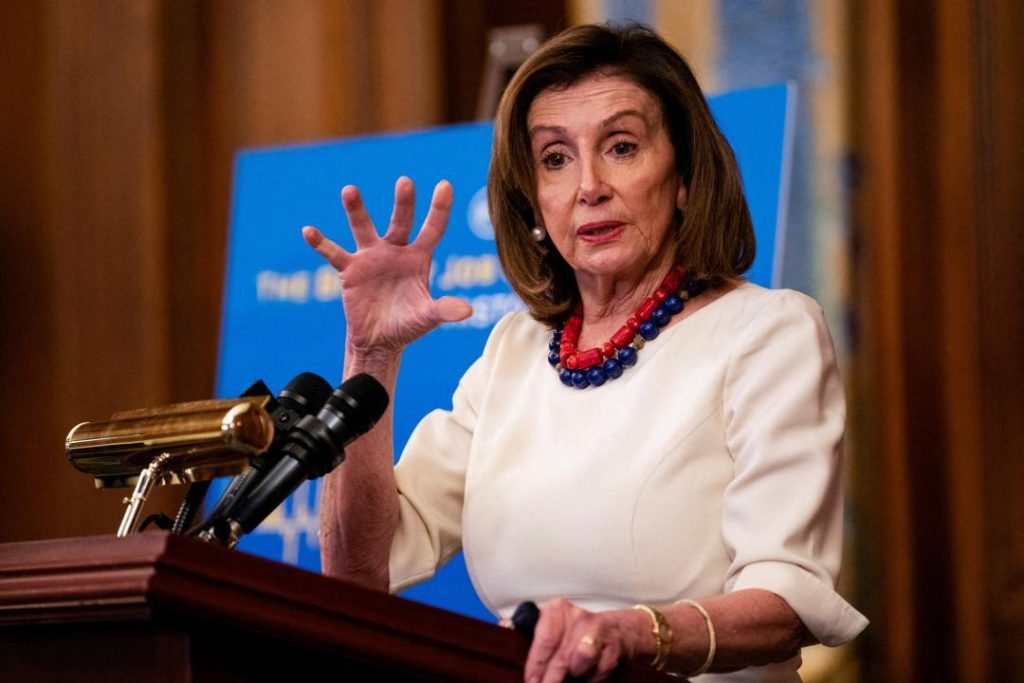
What is PELOSI Act & why is it named after former US Speaker Nancy Pelosi?
The world of politics is always filled with debates and controversies, and the latest one to grab attention is the reintroduction of the PELOSI Act by US Senator Josh Hawley. The acronym PELOSI stands for Preventing Elected Leaders from Owning Securities and Investments, and it aims to prohibit lawmakers and their spouses from holding or dealing in stocks while holding office. But what exactly is this act, and why is it named after former US Speaker Nancy Pelosi?
To understand the significance of the PELOSI Act, let’s take a step back and look at the current system in the United States. Lawmakers are allowed to hold and deal in stocks, which can lead to potential conflicts of interest. For instance, if a lawmaker has a stake in a company that is set to benefit from a policy decision they make, it can create a situation where their personal interests are at odds with the public interest.
The PELOSI Act seeks to address this issue by prohibiting lawmakers and their spouses from holding or dealing in individual stocks, bonds, or other securities. However, the act does make an exception for investments in mutual funds (MFs), exchange-traded funds (ETFs), and Treasury bonds. This means that lawmakers will still be able to invest in diversified portfolios and earn a return on their investments, but they will not be able to benefit from insider knowledge or manipulate the market for their personal gain.
So, why is the act named after Nancy Pelosi? The answer lies in the fact that Pelosi, who served as the Speaker of the US House of Representatives from 2007 to 2011 and again from 2019 to 2023, enjoyed significant stock market gains during her tenure. According to reports, Pelosi’s husband, Paul Pelosi, had a portfolio that was worth millions of dollars, and his investments in companies like Disney and Google saw significant growth during her time in office.
The reintroduction of the PELOSI Act has sparked a heated debate in the US, with some lawmakers and experts arguing that it is a necessary step to ensure transparency and accountability in government. Others have criticized the act, saying that it is an overreach of government power and that lawmakers should be free to make their own investment decisions.
The PELOSI Act is not a new concept, and it has been introduced in the US Congress several times in the past. However, it gained momentum after the 2020 presidential election, when allegations of insider trading and conflicts of interest emerged against some lawmakers. The act has been praised by transparency groups and watchdog organizations, who argue that it is essential to prevent lawmakers from using their positions for personal gain.
One of the key concerns about the PELOSI Act is that it could create a situation where lawmakers are forced to choose between their personal financial interests and their duty to the public. For instance, if a lawmaker has a stake in a company that is set to benefit from a policy decision they make, they may be pressured to vote in a way that benefits their personal finances, rather than the public interest.
However, proponents of the act argue that it will actually increase transparency and accountability in government. By prohibiting lawmakers from holding or dealing in individual stocks, the act will help to prevent conflicts of interest and ensure that lawmakers are focused on serving the public, rather than their personal interests.
In conclusion, the PELOSI Act is a significant piece of legislation that aims to address the issue of conflicts of interest among lawmakers. By prohibiting them from holding or dealing in individual stocks, the act seeks to ensure that lawmakers are focused on serving the public, rather than their personal financial interests. While some have criticized the act, arguing that it is an overreach of government power, others see it as a necessary step to ensure transparency and accountability in government.
As the debate around the PELOSI Act continues, it is clear that this is an issue that will have far-reaching implications for the world of politics and finance. Whether or not the act becomes law, it has already sparked an important conversation about the role of money in politics and the need for greater transparency and accountability in government.



